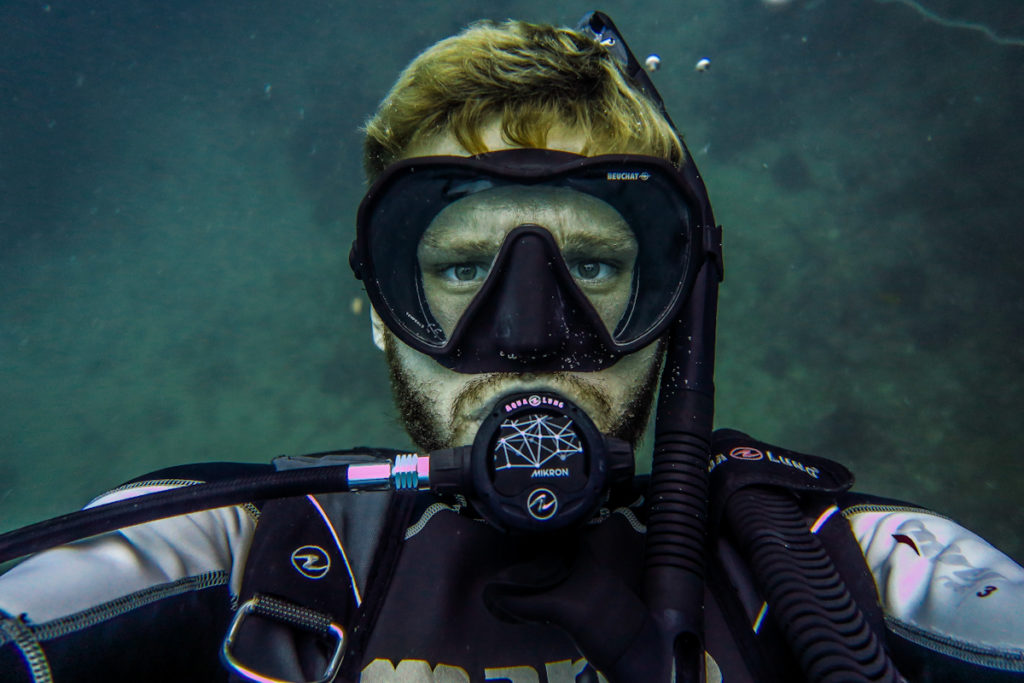Scuba diving is one of the most expensive hobbies in the world, so to avoid spending unnecessary money on replacement diving gear, it’s important to take care of your diving equipment and maintain its condition. When scuba gear is cared for properly, it will last for many years. Well-maintained equipment also helps you see, move and breathe better under water, enhancing your safety and diving experience.
Salt Water Is A Big Offender
After each dive, it is vital to rinse off your gear with fresh water because as soon as the seawater evaporates, salt crystals will form, leading to corrosion and rust. Zippers may get stuck over time if wet suits are not rinsed with clear water to get rid of salt sediment, while snorkel masks get foggy due to dirt and oils.
Another reason for washing and drying scuba diving equipment is to keep it clean. Without humidity, sand and dirt in your gear, mold and mildew are not going to thrive. Mold can lead to serious health consequences, and if it attaches itself to your diving clothes, you might get a body rash or even a serious skin infection. Ensuring that your diving equipment is clean before storing it in a mold-free environment prevents allergic reactions and other health problems.
Airing, improving ventilation and insulation, repairing leaks, and using heating, ventilation and air conditioning (HVAC) systems are some ways to keep your home and storage areas mold-free. Clean up or remove mold that you see in your house, and soak any material such as infected gear with a bleach and water solution or use commercial cleaners that also provide protection from mold. If you suspect the presence of mold and cannot see visible signs, book a mold inspection to make sure structures are not affected.
Sunlight Destroys Scuba Diving Gear
Light is another enemy of scuba diving gear. Because most of the components of your equipment are made from plastic, neoprene and rubber, exposing them to UV rays can cause the materials to break. Even if it is quicker to dry your fins, masks and wetsuit in the sun, doing so will affect their quality and ultimately, their performance. It can also compromise your safety under the water if your equipment is sub-par.
One of the ways to dry your gear is to hang it outside under a shade. In winter, use your garage or boiler room to dry equipment with a dehumidifier that will suck out moisture from the air. When everything is clean and dry, store your kit in a cool, dry and dark room.
Scuba diving is a fun sport, but your gear requires maintenance in order to extend its life and boost your diving experience.
Article kindly submitted by Jen Johnson







